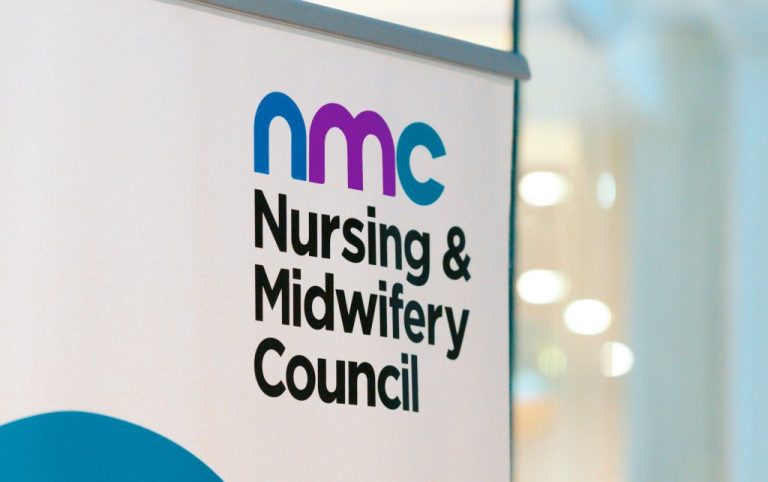The Nursing and Midwifery Council (NMC) has launched ambitious equality, diversity and inclusion (EDI) targets to drive fairness in its regulatory processes, after a new review found bias in the way it handles cases involving Black and male professionals.
The regulator pledged to eliminate ethnicity and gender disparities in its processes and stop the disproportionate pattern of fitness to practise (FtP) complaints received from employers in relation to ethnicity by 2030.
“Everyone who interacts with the NMC should feel respected and treated fairly, regardless of their background or characteristics”
Paul Rees
It comes as new research published today has laid bare the bias that exists for nurses and midwives going through the NMC’s processes.
Researchers at the University of Greenwich, commissioned by the regulator, examined 288 FtP cases that had been completed between 2019 and 2023.
They found evidence of bias in how the NMC handled some cases involving Black professionals compared to White professionals, as well as male professionals compared to female professionals.
Analysis showed that, in some instances, the regulator scrutinised evidence more closely in cases involving Black and male professionals.
For White and female professionals, it found their evidence was “more often accepted as face value”.
Researchers also found that overseas qualifications and professional references were not always given the same weight as those from UK employers.
This disproportionately impacts internationally educated Black professionals, the report said.
Meanwhile, researchers found that conditions of practice were not always applied consistently.
For example, the NMC was found to give Black and/or male professionals interim order conditions of practice that were “difficult to accommodate because they are too broad or unfeasible”.
This was inadvertently preventing professionals from securing employment and undertaking remedial actions, the report warned.
Not having formal representation also affected outcomes. While researchers concluded all professionals could experience these issues, they had a cumulative effect on Black and male professionals.
Despite the bias in the processes, the report found no evidence of bias in the final decisions of these cases, nor any in the way NMC handles cases involving disabled professionals or those whose sexual orientation is unknown.
This is the third report in the NMC’s ‘ambitious for change’ programme of research, which commenced in 2019 to assess the impact its regulatory processes have on different groups of nurses, midwives and nursing associates.
Responding to the report, founder of Equality 4 Black Nurses Neomi Bennett said the NMC was “not a neutral regulator”.
She noted that the group, which supports Black nurses who have faced discrimination at work or in NMC processes, had supported many individuals who had been referred “without evidence, without protection and without a fair process”.
Ms Bennett added: “The NMC often claims that there is ‘no bias in the final decision’ but that completely ignores what happens before that point.
“If the road to the decision is paved with disbelief, unequal scrutiny, and devaluation of Black professionals, then the system is already broken.”
In response to the review, the NMC has launched new EDI targets to eliminate disparities in its processes.
The first target it to eliminate ethnicity and gender disparities in the NMC’s fitness to practise processes by 2030.
It said it would support this target by including EDI and de-biasing as key criteria in FtP quality assurance, as well as delivering “pro-active de-biasing measures” in FtP processes.
EDI training for all staff, including a focus on regulation, will also be delivered, the NMC said.
The second target is around eliminating the disproportionate pattern of FtP complaints received the from employers in relation to ethnicity by 2030.
The NMC confirmed it would survey employers to understand their measures to mitigate against bias in referrals and share best practice with employers on avoiding bias in referrals.
It also pledged to introduce ‘bias checks’ in the FtP referral process.
Meanwhile, the regulator has promised to eliminate disproportionate outcomes, based on ethnicity, in nursing and midwifery education and training by 2035.
By 2030, it said it expected see evidence of: a measurable increase in acceptance rates to all courses, reduction in attainment gaps and improved satisfaction and inclusion for ethnic minority students.
Another commitment included eliminating disparities in the representation of Black, Asian and ethnic minority NMC colleagues in the upper two pay quartiles starting now
The NMC also promised to eliminate ethnicity, gender and other pay gaps by 2030.
It said it had already undertaken work to reduce ethnicity pay gaps, such as pledging to ensure ethnically diverse shortlists where there are Black, Asian and ethnic minority candidates who meet the minimum requirements for a role.
The NMC has also appointed two heads of EDI at the organisation.
One individual, starting in July, will focus on regulation to ensure processes are as fair, safe and equitable as possible while protecting the public.
The other, starting in September, has an internal focus on the NMC workforce.

Paul Rees
Paul Rees, interim chief executive and registrar at the NMC, said the new targets represented “a major shift” in the regulator’s approach to equity for nursing and midwifery professionals.
He said: “The ‘ambitious for change’ research has identified disparities in our processes. This is unacceptable, and setting the targets will be the catalyst for change.
“We are embedding fairness and inclusion at the heart of everything we do. Everyone who interacts with the NMC should feel respected and treated fairly, regardless of their background or characteristics.
“By adapting how we work, creating a more inclusive culture, and using data to drive improvement, we will play our part in eliminating discrimination, bias and inequality.
“That is how we will become an EDI-based and fit-for-the-future organisation, trusted to maintain confidence in the professions.”

